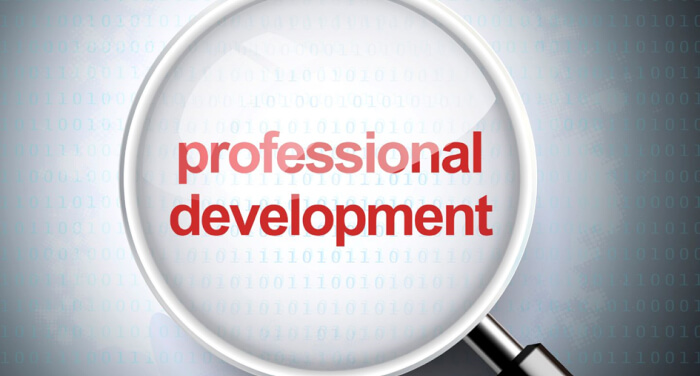How Learning Management Systems Are Shaping Education
Table of Contents
The world of education is undergoing a profound transformation, and at the heart of this revolution are Learning Management Systems (LMS). These digital platforms have redefined how we learn, enabling educators, students, and professionals to harness the power of technology for a more personalized and efficient learning experience.
In this comprehensive guide, we will explore the evolution of Learning Management Systems, the different types available, the customization and personalization options they offer, the integration of digital credentials, and how businesses are leveraging LMS for corporate training. By the end of this exploration, you will understand how Learning Management Systems have become pivotal in shaping education and training across various domains.
What Is a Learning Management System (LMS)?

Before delving into the transformative impact of LMS on education and training, let’s begin by defining what a Learning Management System is.
Definition of LMS:
A Learning Management System (LMS) is a software application or web-based platform designed to manage, deliver, track, and report on educational and training content. In essence, it’s a central hub for organizing, delivering, and managing courses, making the learning process more organized and efficient. In short, it provides a centralized and automated way to create, deliver, and manage educational courses and training programs.
Benefits of LMS:

LMS offers numerous advantages that are transforming the educational landscape. Here are some key benefits:
- Accessibility: Learning materials are available anytime, anywhere, making education more accessible to a wider audience.
- Organization: LMS helps educators efficiently manage course content and resources, making it easier for learners to access the materials they need.
- Progress Tracking: Educators and learners can easily monitor and assess learners’ progress, enabling data-driven improvements in the educational process.
- Communication: LMS often includes tools for communication, enabling seamless interaction between instructors and students.
- Certification: LMS can issue online certificates upon course completion, streamlining the certification process.
Key features
- Course Content Management: LMS allows educators to create and organize learning materials, including text, multimedia, and assessments.
- User Management: Users, such as students or employees, can be registered, managed, and grouped for customized learning experiences.
- Progress Tracking: LMS systems offer tools to track and assess learners’ progress, providing insights into their performance.
- Communication and Collaboration: LMS often include communication and collaboration tools, enabling interactions between instructors and students or among learners.
- Assessment and Certification: LMS can facilitate the creation and management of assessments and issue online certificates upon course completion.
The Evolution of LMS: From Early E-Learning to Modern Digital Learning Platforms

The roots of LMS trace back to the early days of e-learning and computer-based training. The first LMSs emerged in the early 1990s, as part of the growing e-learning movement. These early LMSs were relatively simple, providing basic features such as course content delivery and assignment submission. Over the years, they have evolved significantly, adapting to the needs of modern learners and educators, and have become increasingly sophisticated, incorporating new features and technologies to support a wider range of learning and teaching activities. For example, modern LMSs typically include features such as:
- Interactive learning content, such as videos, simulations, and quizzes
- Social learning tools, such as discussion forums and chat features
- Personalized learning paths
- Gradebooks and analytics
- Mobile support
Moreover, the journey of Learning Management Systems has been nothing short of remarkable. Let’s take a closer look at how they have evolved:
1. Early E-Learning Systems
The concept of e-learning, or electronic learning, emerged in the mid-20th century with the use of computers for educational purposes. Early e-learning systems primarily consisted of static course materials delivered on floppy disks or CD-ROMs.
2. Web-Based LMS
With the internet’s growth, web-based Learning Management Systems came into existence. These systems allowed for the delivery of educational content over the web, enabling remote and asynchronous learning. Moreover, these platforms have evolved into modern digital learning systems, offering interactive content, mobile accessibility, social learning features, and robust analytics. As technology advanced, so did the capabilities of LMS. They are no longer just tools for content delivery; they are comprehensive platforms for managing and enhancing the learning experience.
3. Modern Digital Learning Platforms
Today’s LMS are far more sophisticated. They offer interactive and multimedia-rich content, mobile accessibility, social learning features, and robust analytics. Modern LMS have evolved into comprehensive platforms that facilitate a wide range of educational activities.
Case Studies:
To illustrate the transformative impact of modern LMS, let’s explore case studies of popular platforms, showcasing how they have revolutionized education. These case studies will provide concrete examples of the positive effects of digital learning on education.
Types of Learning Management Systems

Learning Management Systems come in various forms, catering to diverse educational and training needs. Here are the primary types of LMS:
1. Open-Source LMS
Open-source LMS are free or low-cost systems that provide flexibility and customization options. Popular open-source LMS include Moodle and Open edX. They are ideal for institutions and organizations with the resources to handle system setup and maintenance.
2. Proprietary LMS
Proprietary LMSs, on the other hand, are commercial systems offered by software companies. These systems often come with support services, extensive features, and ease of use. Examples of proprietary LMS include Blackboard and Canvas.
3. Cloud-Based LMS
Cloud-based LMS is hosted on remote servers, offering scalability and accessibility from anywhere with an internet connection. This type is ideal for institutions and organizations looking for easy deployment and maintenance. Notable cloud-based LMSs include Adobe Captivate Prime and Google Classroom.
4. Corporate LMS
Corporate LMS, as the name suggests, are tailored for the training and development needs of businesses. These systems focus on employee training, compliance training, and skill development. Examples of corporate LMS include TalentLMS and Docebo.
5. Academic LMS
Academic LMS caters to educational institutions, such as schools and universities. These systems are designed to manage course content, assessments, and student records. Common academic LMS include Moodle for Schools and Schoology.
6. Commercial LMS
Commercial LMS, offered by software companies, provides extensive features and support services. They are known for their ease of use and robust functionality. Commercial LMS platforms are widely used in various educational and corporate settings. Examples include platforms like Blackboard, Canvas, and Brightspace which is widely used in education.
Customizing the Learning Experience: Personalization and Adaptation in LMS

Personalization and adaptation are at the heart of modern education. One of the key advantages of Learning Management Systems is the ability to personalize and adapt to the learning experience. Personalization and adaptation are at the core of modern education. This personalization goes beyond simply customizing the interface; it extends to tailoring content, assessments, and progress tracking to meet individual learning needs. Here’s how LMS enables customization and personalization:
1. Individual Learning Paths
Education is no longer a one-size-fits-all approach. LMS can create individual learning paths, tailoring the learning experience to each learner’s unique needs, preferences, and progress. Learners have the flexibility to explore content that aligns with their interests and goals, making the educational journey more engaging and meaningful. For instance, advanced learners can skip introductory content, while those who struggle with a specific topic can receive additional support.
2. Adaptive Learning
Some modern LMSs incorporate adaptive learning technology, which utilizes data analytics and artificial intelligence to adjust the difficulty and pace of content based on individual performance. This ensures that each learner receives the support and challenges they need for success. Adaptive learning algorithms assess individual progress and adapt the content’s difficulty and pace, accordingly, optimizing the learning process.
Personalization and adaptation in LMS contribute to better engagement, retention, and overall learning outcomes. It’s a significant departure from traditional educational approaches that often struggle to cater to the diverse needs of learners.
3. Content Customization
Instructors can create or curate course content that best suits the learning objectives. LMS allows for multimedia content, interactive exercises, and the integration of third-party educational resources.
4. Gamification
Gamification elements, such as badges, leaderboards, and rewards, can be incorporated to motivate and engage learners. This approach makes learning more enjoyable and immersive.
5. Tracking and Analytics
LMS generates data on individual and group performance, allowing instructors and administrators to identify areas where learners might need additional support.
Corporate Training and LMS: How Businesses Utilize LMS for Employee Development

LMSs are not limited to academic settings; they are increasingly utilized by businesses for employee development. Beyond academic and traditional educational contexts, Learning Management Systems have found a strong foothold in the corporate world. Businesses of all sizes are leveraging LMS for employee development and training.
LMS for Employee Training
Learning Management Systems offers an effective solution for businesses to deliver training programs to their employees. They enable the creation of onboarding materials, compliance training, skill development courses, and professional development opportunities. Platforms like TalentLMS and Docebo are integral in corporate training.
Importance of Employee Training:
In the corporate world, continuous learning and professional development are crucial for both individual and organizational success. Businesses are recognizing the value of investing in their employees’ growth and skill development and operating in competitive environments understand that investing in their employees’ growth and skill development is not just a strategic move but a necessity for survival and success. Here are some key aspects of employee training’s significance:
1. Onboarding and Orientation
LMS is used for onboarding new employees, and providing them with essential training and orientation materials. This is important because effective onboarding ensures that new employees quickly become productive members of the team. LMS simplifies the creation and delivery of onboarding materials, making the process more efficient.
2. Compliance Training
Businesses operating in regulated industries must provide specific training to comply with industry regulations. LMS can automate and track compliance training, helping businesses avoid costly penalties and legal issues.
3. Skill Development
As job requirements evolve, employees need access to skill development courses to stay competitive. LMS provides a platform for businesses to offer a wide range of skill development opportunities and supports skill development by offering a range of courses and resources that enable employees to acquire new skills and knowledge necessary for their roles.
Professional Development

Employee growth and advancement within the organization are fostered through professional development. Businesses can use LMS to offer professional development opportunities, allowing employees to advance their careers within the organization. Moreover, LMS plays a crucial role in providing employees with opportunities to acquire new skills and knowledge necessary for their roles.
Progress Tracking
Learning Management Systems provide detailed tracking and reporting capabilities, enabling businesses to monitor employee progress, identify areas for improvement, and assess the effectiveness of training programs.
Online Certificates
Online certificates are electronic documents that verify a person’s completion of a course or training program. Online certificates can be issued by LMSs and can be used to showcase a person’s skills and qualifications to potential employers and clients.
Conclusion
In conclusion, Learning Management Systems has transitioned education and training from traditional, in-person models to efficient and adaptable digital platforms. Their evolution from early e-learning to modern digital learning platforms has reshaped the way we acquire knowledge and skills. The different types of LMS cater to various educational and training contexts, from schools and universities to businesses and organizations.
The customization and personalization options offered by LMS empower educators and trainers to create tailored learning experiences, promoting better engagement and learning outcomes. In the corporate world, businesses are increasingly relying on LMS to streamline employee development, compliance training, and skill enhancement.
The ability to customize and personalize the learning experience is at the core of LMS, empowering both educators and learners. The corporate world also benefits significantly from LMS, as businesses recognize the importance of continuous learning and professional development.
As we continue to embrace the digital era, Learning Management Systems will remain at the forefront of education and training, playing a pivotal role in shaping the future of learning, both in academic and corporate settings.
Whether you are an educator, a student, or a business leader, it’s essential to understand and harness the power of LMS for a brighter, more efficient, and highly personalized future of education and training. The transition from traditional to digital has only just begun, and the possibilities are endless.



